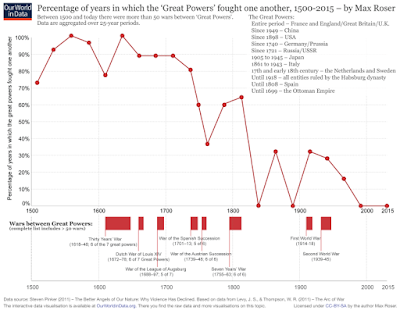Everyone has the
right to life, liberty and security of person
(Human Rights Series Part 2; Part 1 - Free Speech)
This is article 3 of the Universal
Declaration of Human Rights. I think we can all agree that the world is failing
at quite spectacularly at this one. According to the ICRC, Syria now has 6.3
million people internally displaced, 5 million living in besieged cities and
4.8 million refugees who have fled the country. As of April the UN estimated
the death toll to be at least 400,000.
God knows how many more have died since the Syrian and Russian bombing
campaigns accelerated, and the siege of Aleppo started.
When the genocide happened in Rwanda, we
all vowed that the world would never let such a thing happen again, and yet
we’re watching it right now in Syria. So what went wrong? It’s pretty obvious
that the world’s global policeman, in the shape of America, has blown all his
goodwill, lost his authority and just flat-out spread himself too thin. Not
only that, but by so transparently seeking self-interest in Iraq and other
conflicts, Uncle Sam has set a dangerous precedent. Enter Russia and Iran as
the self-interested saviours of the Syrian regime, and agents of genocide.
In ‘The Better Angels of Our Nature’,
Steven Pinker revived Thomas Hobbes’ idea of keeping the peace by means of a
‘monopoly on the legitimate use of force’.
The Wild West illustrates the principle perfectly. The American West was
a great deal more violent and dangerous 100 years ago than it is now because
everyone was armed, and everyone had the right to defend himself, which set the
scene for vigilantism and unbreakable cycles of revenge killing. Nowadays, the
police generally reserve a monopoly on violence, and so the average citizen is
much safer.
To me there is a clear analogy between this
and one of the core principles of the United Nations – that no single nation
has the right to take unilateral action against any other. Clearly, the UN
isn’t keeping the peace as well as it could, and the veto power of the Security
Council member states is one of the main reasons why. And yet, in cases where
the member states can agree, the UN has had a good deal of success. There have
been 71 UN Peacekeeping missions since 1948, with 16 currently in progress.
Perhaps the most successful United Nations military intervention thus far was
protecting South Korea from invasion by the North in 1953. I wouldn’t be
sitting so comfortably in Seoul right now if that hadn’t happened.
So, to draw these threads together, my wish
is that individual states would have less power and that the UN would have more
power to intervene in conflict situations. To me, giving a disinterested body
like the UN a monopoly on the legitimate use of force is only way of ensuring
that peacekeeping is exactly that, and not politically motivated like the
American action in Iraq, or the Russian involvement in Syria.








